
Indonesia 2018,Thailand 2022,Bali 2022, Bali 2023
vakantio.de/phineundcarogotoindonesia
Along the north coast of Bali
Birt: 07.07.2018
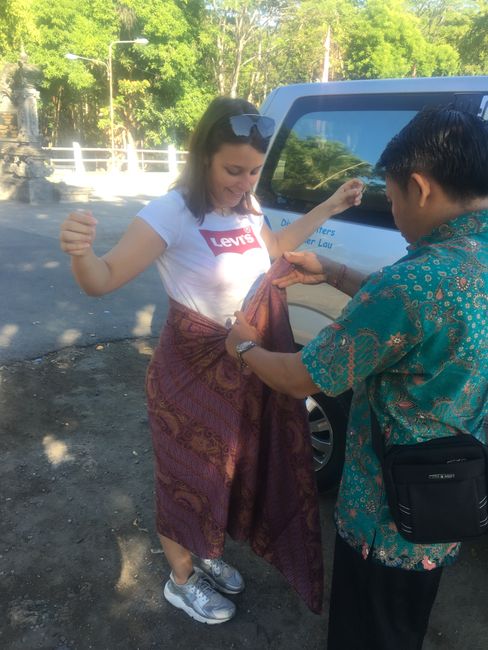
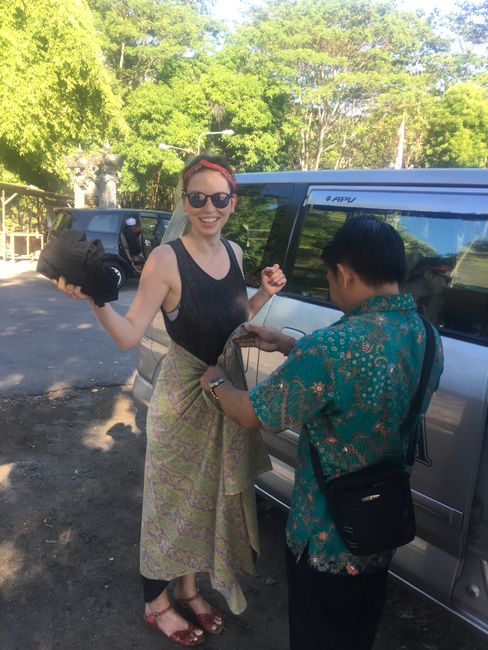
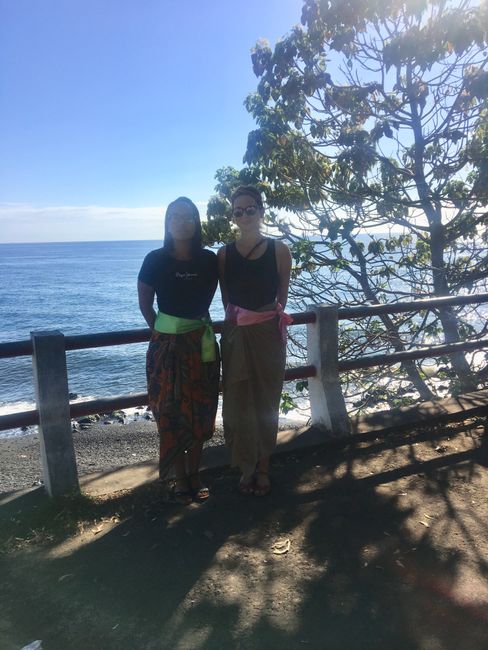
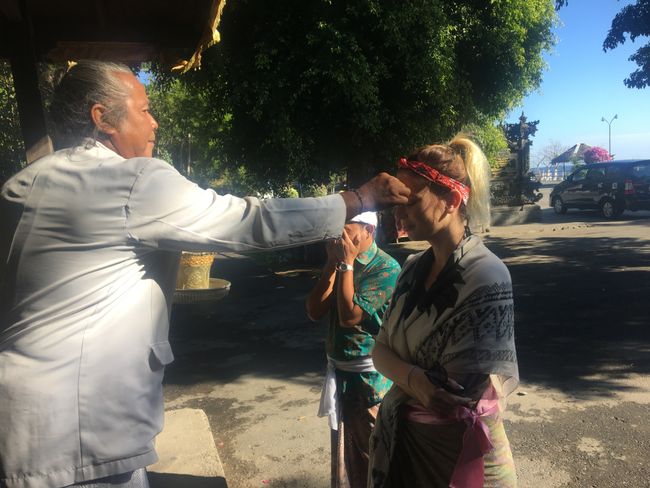
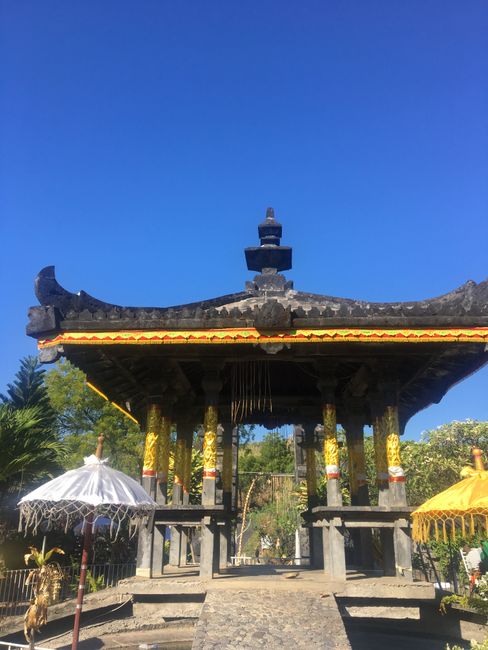
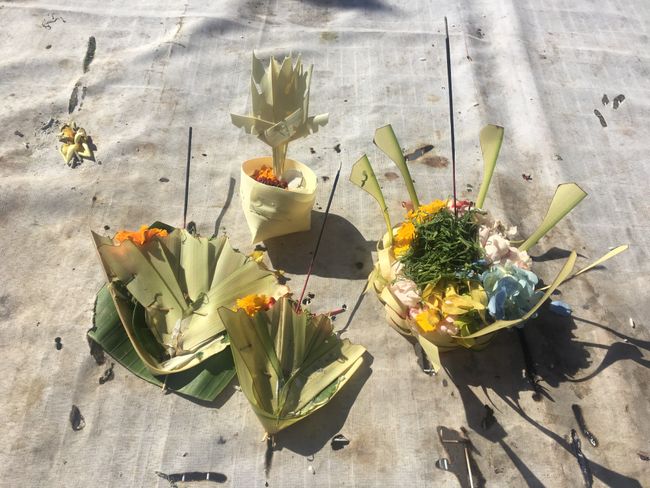
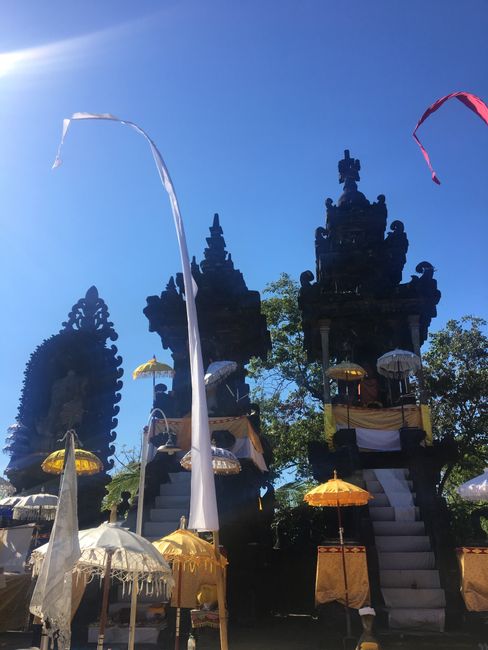
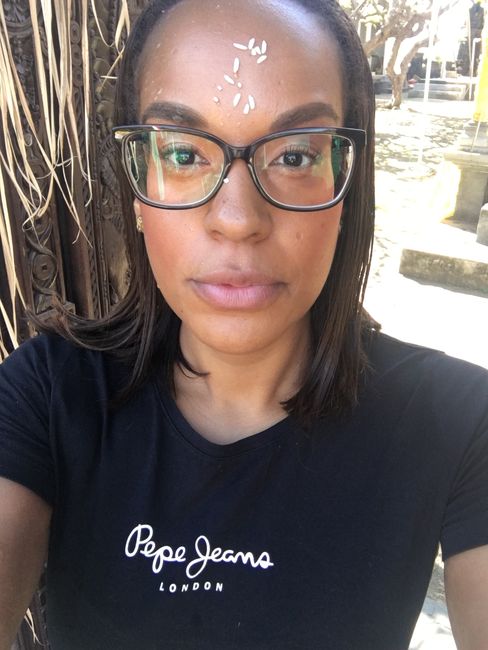
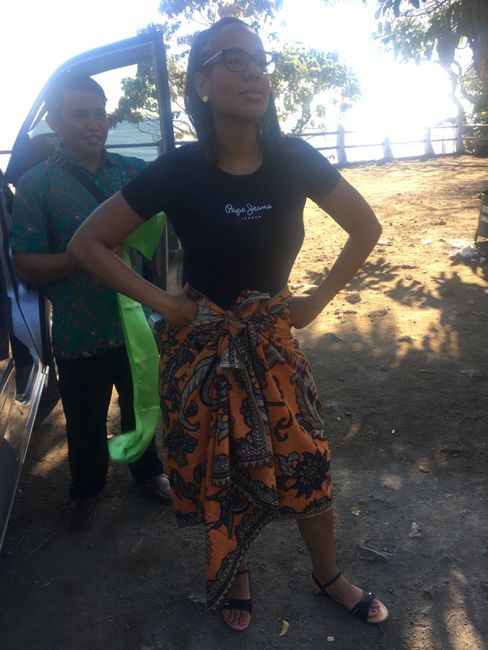
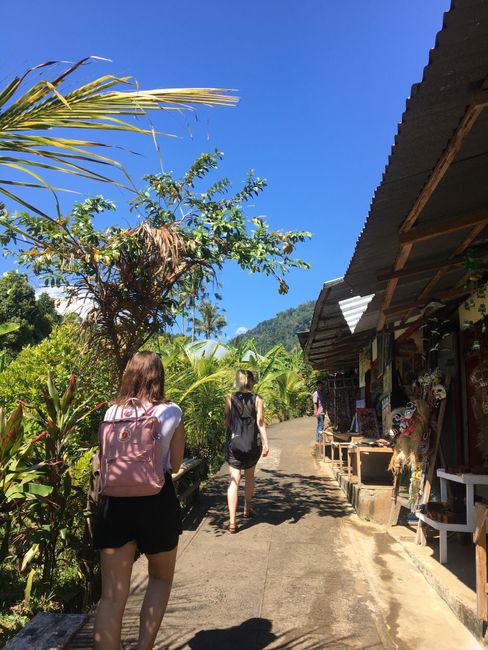
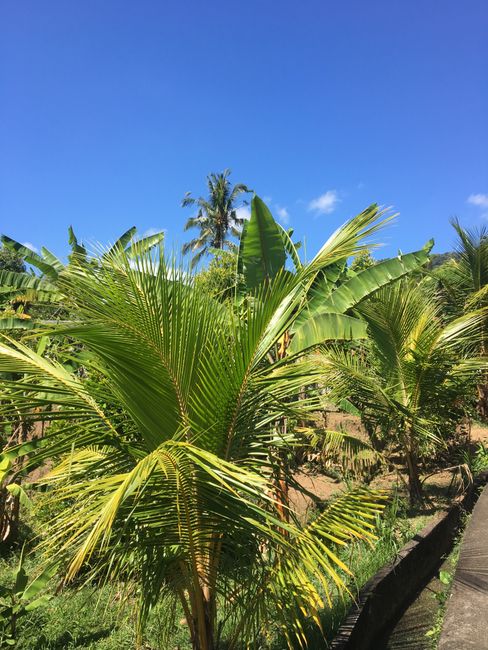
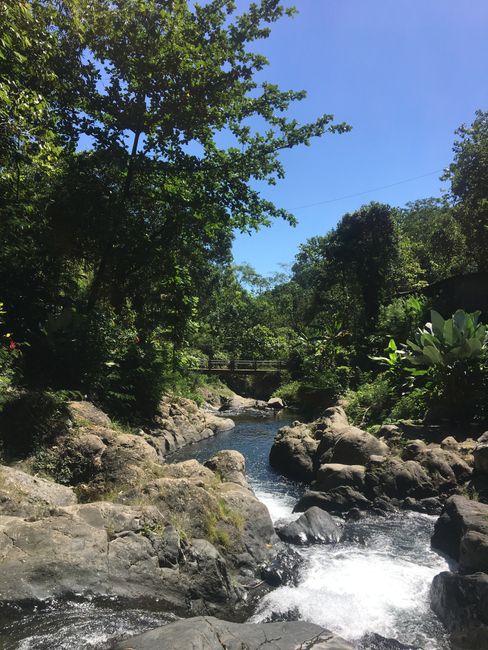
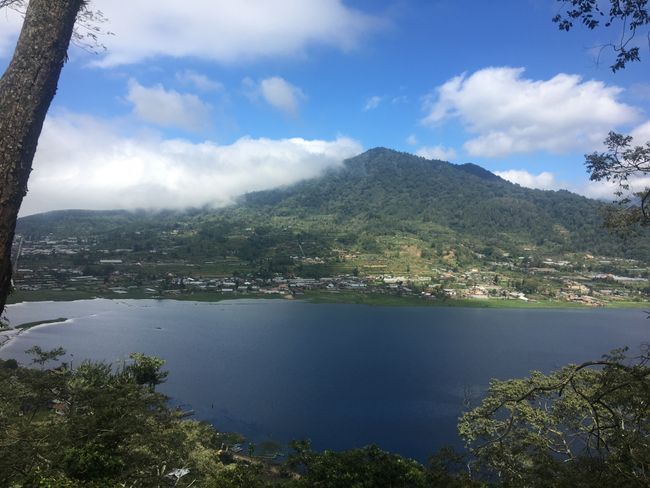
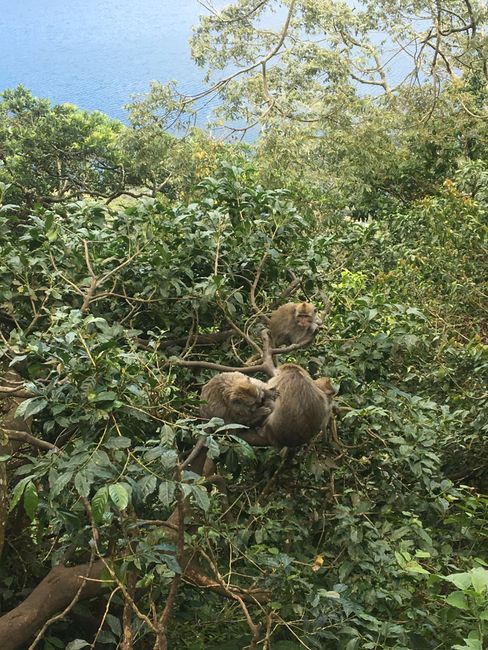
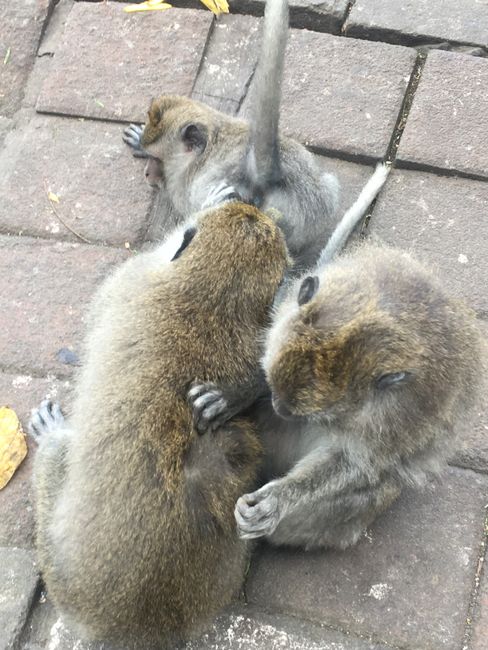
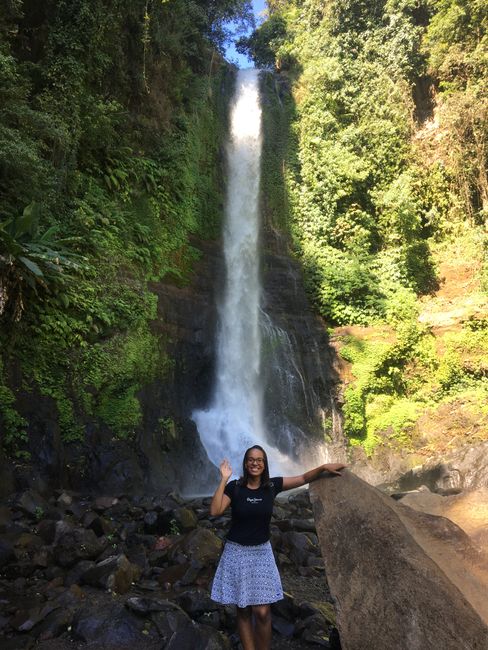
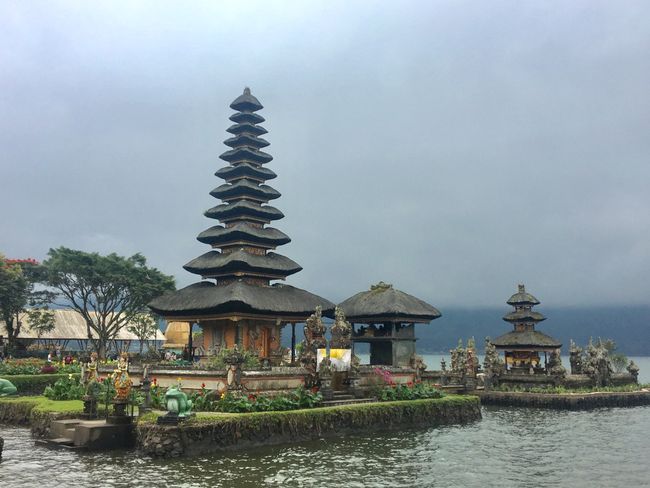
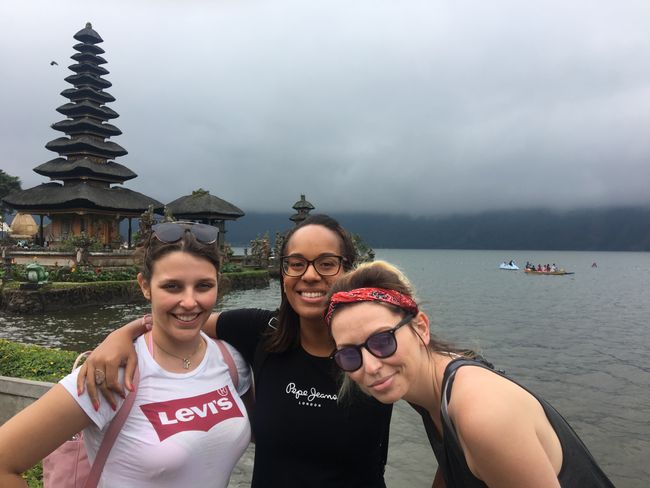

Gerast áskrifandi að fréttabréfi
After our first breakfast, we were picked up by M. (somehow Balinese name) - called Klausi- for our first tour in northern Bali. Lisa from Cologne accompanied us, Nurse Lisa. She is not only very nice and funny, but she is also excellently equipped with motion sickness pills, which will save our lives on our fishing trip on Monday ^^ Caro and I are looking forward to her accompanying us until the end of our Bali stay.
The tour first took us to Ponjok Batu right by the sea. Here, our competent guide told us a lot about himself (no affair stories this time) and the Hindu culture, which is vividly reflected in this temple.
On three levels (we will see, the number 3 has a great significance in Bali) - This World, Otherworld, and Divine level - you get an insight into the implementation and practice of religion.
Before we were allowed to enter the temple, our thoughts had to be purified. White rice was glued to our foreheads for that purpose. Caro received a second load for her impure thoughts on level three. The gods indeed see everything. After a physical cleansing using tirda (holy water), we entered the prayer area. We learned that the OHM of yoga is derived from the three deities Brahma (A-Fire), Vishnu (U-Water), and Shiva (M-Air). We learned about the four castes of the imperial system, where the lowest layer honors the three superordinated layers of emperor, government, military, and members of the economy. In today's time, there are no longer any social classes, officially at least. Even the lowest class now has the right to hold high-ranking members of the government, and they are now allowed, like everyone else, to have their dead bodies cremated. However, financially speaking, this is only possible for very few people. The cremation of a dead body costs about €3500, and the cremation of a high dignitary can cost up to €200,000! Announcements and refreshments for guests have to be paid for; sometimes the whole village comes by to bid farewell. Therefore, financially weaker people still bury their relatives today. Instead, ceremonial symbols made of sandalwood are made and burned, which is much cheaper. According to belief, however, the body must be buried at a favorable time. Only then can the soul pass on to the sandalwood figure. The appropriate time is taken from a calendar, so worst case scenario, grandma is still in the cold storage for another month.
Man, woman, and child represent the next three as a constellation. All parts have equal rights and obligations, women are not married off and have the same rights as men in marriage. A patriarchal order only exists in inheritance law. If a man and a woman divorce, the children go to the father, as the wife and children are added to the family lineage and household temple of the paternal side. If the woman legally divorces and is removed from her husband's household temple for a symbolic offering, she can remarry. Social exclusion does not exist. "Only" if a woman gets pregnant out of wedlock, she and the child are ostracized, as neither of them is registered in any household temple and thus no paternal line can be indicated. In the best case, the father recognizes paternity, then one is also off the hook if unmarried.
Abortions are generally illegal. However, if a family's economic wealth exceeds the ability to take good care of the other children, the child may be aborted.
After so much culture, a little bit of nature again. We leave the coast and head for the 40-meter-high Gitgit Waterfall. Unfortunately, we discovered the access to the natural swimming pool too late.
On the way to the Ulun Danu Temple, we passed a monkey forest on the edge of Lake Buyan. Unlike in Ubud, this is a natural forest area with many more monkeys that like to stay mainly near the road. Tourists hold and offer fruit, locals throw it out of their cars as they drive by. So it's delivery service. Instead of collecting food, the chillaxed monkeys like to be photographed, argue, make up, and reproduce ^^
Before heading to the Ulun Danu site, we eat at a restaurant. Amazingly, you pay a fixed price and can help yourself to a buffet; our chance to try a little bit of everything. Test loser: black bean pudding. That certainly is not everyone's taste.
The temple on Lake Bratan itself is crowded with tourists, but it could also be Lake Garda in terms of scenery. Although the temple, dating back to the 17th century, located at 1200m above sea level, in honor of Vishnu (Water Temple), should actually be the highlight of the tour, the visit didn't appeal to us much.
As decided, we climb Mount Batur together; pickup: 2:30 a.m .; start: 3:30 a.m. Early rising is required, so after returning home just after five, a quick dinner and off to bed.
Gerast áskrifandi að fréttabréfi
Svaraðu (1)
Marika
Ich bin immer wieder begeistert über die bildhafte Beschreibung. Man hat das Gefühl auch dabei zu sein. Freue mich auf den nächsten Eintrag. Eine angenehme Überfahrt nach Lombok mit den "Pillen von Lisa".
